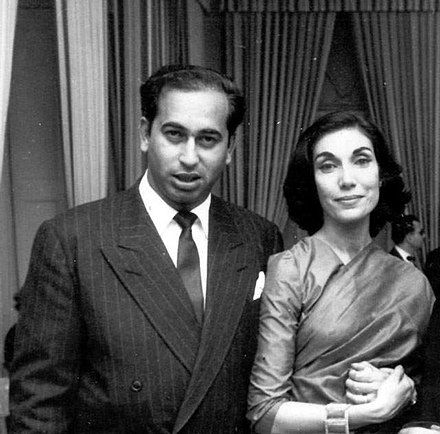
STORY
The film centers around Kashmir Valley in 1989 or 1990 when the hatred for the Kashmiri Hindu Pandits ignite and the Islamic militant terrorists begins to butcher them in their way. This is the story of an old teacher Pushkar Nath Pandit (Anupam Kher) who witnesses the riots and protects his grandson Krishna (Darshan Kumar) but loses everyone in the family who are murdered by his own former student Farooq Malik Bitta (Chinmay Mandlekar) who is now the militant commander of the terrorist organization there.
INTRODUCTION
I assume ‘The Kashmir Files‘ is the second chapter of director Vivek Agnihotri‘s Files Trilogy because Vivek’s previous film was The Tashkent Files and his next project is The Delhi Files. So it is quite an interesting and bold step towards planning to make films in Bollywood in a particular direction that is out of stereotypical masala entertainment which is still the usual existence. Plus a type of casting in both Tashkent and Kashmir indicates that the director is selective to rope actors where he believes that they suit the roles. He is not prioritizing his options to commercialize the chances of generating a lot of money but addresses issues through his stories.
His previous film Tashkent was a necessary wake-up call to the audience for remembering India’s former PM Lal Bahadur Shastri whose death is still a mystery. And now he raises the political issue of Kashmiri Hindu Pandits in the latest film. A subject hardly anyone had been raising for decades. Genocide of Kashmiri Hindus that, to my surprise, is termed their exodus. Being impressed with how Vivek executed Tashkent, I was interested to see how he directed Kashmir. With a cordial disappointment, ‘The Kashmir Files’ heavily turns out to be some propaganda film.
REVIEW
I do not deny the sufferings of Kashmiri Pandits who became refugees in their own country nor do I whitewash the tragic chapters of Kashmir’s history. It is the awful screenplay that indicates that the intention of the director was more to highlight straight visible hatred for the Muslim community rather than addressing the political event’s bullet anecdotes. Almost all the sequences that involved a Muslim character portrayed some special kind of evil sent on the earth to uproot the existence of Hindus in the state.
A stereotypical portrayal of the Muslims was something else we have watched in Indian films for decades but this film looks intentionally clear sending a wrong message to raise hatred for the Muslims. In one particular scene, a woman seeks advice from an elder Muslim with a Jinnah cap and reddish-brown dyed beard about her son’s education. In reply, out of nowhere, the man goes pervert and starts harassing her. Crazy writing!
A NONSENSICAL PROPAGANDA

I can judge the film by considering any of the two possibilities. One is that the hatred of Kashmiri Muslims for the Hindu Pandits was as real as portrayed in the film and involved no intentional agenda of misleading the general population of India believing that the Muslim community is the root cause of the evil that aims to kill their race. Second, the director chose one side of the story to address the fate of Kashmiri Pandits by dragging the Muslims in a villainous nature and labeling it a religious matter rather than a political matter. I choose the latter.
Why? Because every single Muslim character had a negative portrayal that sparks the intentions of the director and raises eyebrows. There were no sides to the coin, the story of the film was genuinely one-dimensional which made me think if Vivek Agnihotri directed the film or Narendra Modi? Did RSS finance this film? At such a terribly slow pace of almost a three-hour film, I felt as if this was some experimental film where the makers decided to treat Muslims as Nazis and Hindus as Jews.
Again, I do not deny the historic events of the Kashmiri Pandits’ genocide and indeed Muslims were the ones involved in their killings but the film played a vital role in making this an issue of religion rather than politics. As compared to all the agenda films produced in Bollywood, The Kashmir Files got unusual publicity, media coverage, and endorsement from the ruling party despite mixed reviews from the critics. The film was screened at around 600 cinemas across India which speaks a lot. Narendra Modi himself endorsed the film by stating the film as a truth that was suppressed for years.
PERFORMANCES
Coming back to my review, the motive of watching the film was not only to observe the nature and the aesthetics of the film but to judge the technical aspects that made my case for watching the film right. I feel that ‘The Kashmir Files’ was made personally for Anupam Kher who has his sentiments involved in the story. Not only is he a Kashmiri Pandit but the name of his father was also Pushkar Nath. It is like an offer of a lifetime he cannot refuse and this is why we watched a different Anupam Kher that we never observed in his past 500 films and 5 decades. Surely his best performance since ‘Maine Gandhi Ko Nahin Mara‘.
Mithun Chakraborty also gave quite an impressive performance. At first, I was concerned about how come a Bengali actor will portray a Kashmiri as Mithun’s usual accent doesn’t change while playing any character at all. But the name of Mithun’s character is Brahma Dutt and Dutts are Bengali Kayasthas so his role in Kashmir fits. Cinematography is one of the film’s pluses.
CLOSING REMARKS
The Kashmir Files is bleak, one-dimensional, and committed to factual inaccuracies with awful script and direction leading to nowhere but encouraging hate speech by generalizing Islamophobia.
RATINGS 3/10
SUBSCRIBE TO MY YOUTUBE CHANNEL AND WATCH MY FILM REVIEW HERE
FOLLOW ‘THE DARK KNAIK’ ON OTHER SOCIAL PLATFORMS
FACEBOOK https://www.facebook.com/thedarkknaik
INSTAGRAM https://www.instagram.com/thedarkknaik/
LETTERBOXD https://letterboxd.com/TheDarkKnaik/






